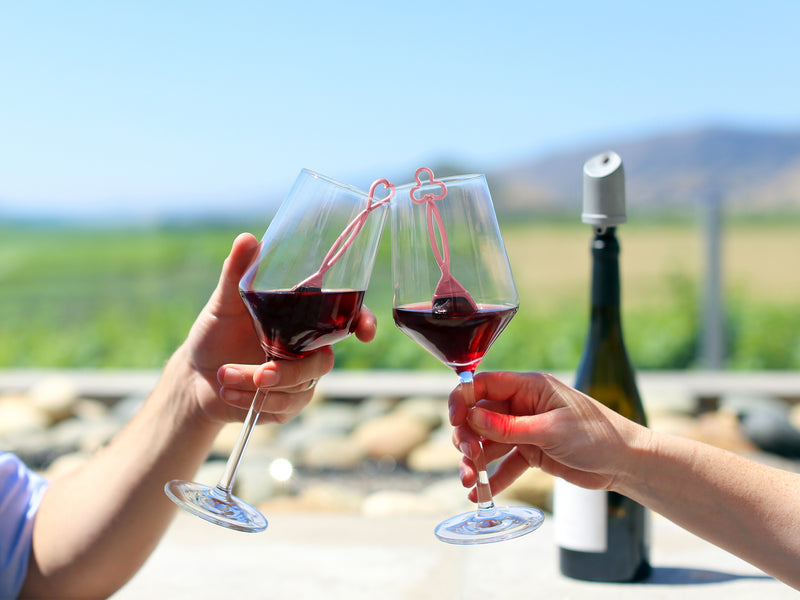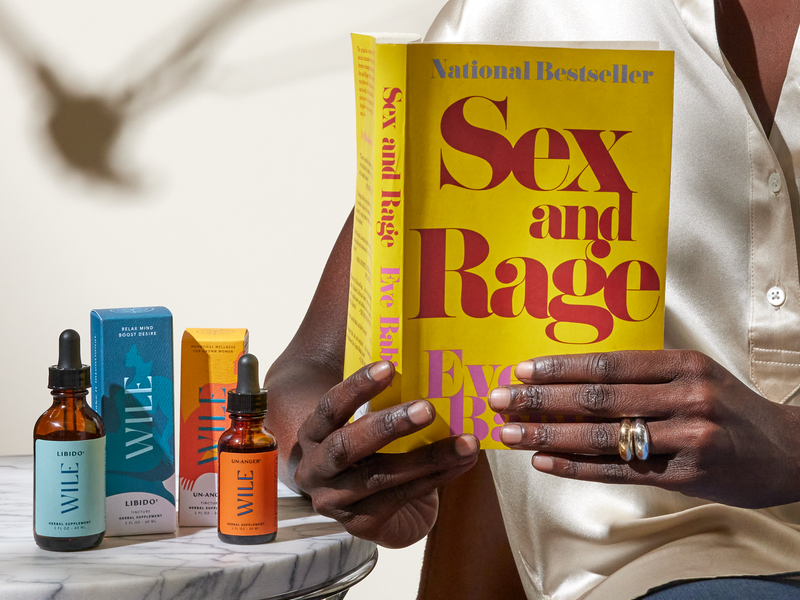Viking-Tested, Science-Approved
We’re guessing that your lifestyle involves less of the hard labor, farming and sailing of daily viking life. But to your nervous system, stress and fatigue feel the same whether you’re worrying about tides and battle or a meeting with your boss.
Thankfully rhodiola, the viking remedy for stress and fatigue, can help your mind feel calm, centered and sharp and your body feel energized and strong. If you’re starting to feel the stress-enhancing, fatigue-inducing effects of hormonal shifts, rhodiola can help you feel ready to take on the world.
Why We Love Rhodiola
- Rhodiola is an adaptogen. This means that it reacts to the chemicals and hormones in your brain and body to restore you to a calm balance. Rhodiola’s adaptogenic properties also help with stress, burnout and occasional depression symptoms
- Rhodiola can boost energy and decrease fatigue. In fact, rhodiola has been used as an athletic stimulant since the time of the Vikings. Many russian and scandinavian athletes still use it! We’re not promising any gold medals, but rhodiola can help get going when you’re feeling sluggish.
- We’re always fascinated with developing research on plant medicine, and scientists are releasing promising evidence of more rhodiola uses. Currently under study: diabetes, some cancers, stress eating and immunity boosting.
Key Benefits:
Lowers stress - rhodiola’s adaptogenic properties mean it can work with your body’s chemical and hormonal levels and offer balance. If you have a lot of the stress hormone cortisol in your system, rhodiola can neutralize its effects. Most people find that this reduces stress and promotes calm.
Relieves fatigue - rhodiola functions as a mild stimulant. A study on rhodiola use in athletes found that it helped them feel happier and less exhausted at the end of a workout than the control group.
Benefits memory and brain function - rhodiola has been found to increase brain function, especially as it improves problem-solving and recovery from mistakes. The working theory about how it helps brain function is that it reduces stress by lowering cortisol, and that it’s easier to think when you’re not stressed. You know that whirlpool of stress that happens when you’re trying to do a difficult task? Being stressed makes the task harder, which in turn makes you more stressed, and it goes on and on. Oof. Rhodiola combats that feeling to prevent burn-out.
Reduces feelings of occasional depression - Rhodiola can help you bounce back from the blues. When compared in a clinical trial with Zoloft and a placebo, rhodiola was more effective at reducing depression symptoms than the placebo but less than the zoloft. However, the zoloft group had more negative side effects.
Traditional Uses:
Rhodiola has a long history of medicinal and athletic use in Scandinavia and Russia. It’s also traditionally used for:
- Occasional anxiety
- Occasional depression
- Fatigue
- Increased stamina
- Increased tolerance of high altitudes.
About the Plant:
Rhodiola grows in cold European and Asian mountains. It has green semi-succulent leaves that surround the stem in a rosette pattern, and yellow flowers grow at the end of the stems. The medicinal properties are contained in the roots.
Found In (Wile Products)
Things to Know about Rhodiola:
Rhodiola is considered very safe, but it may not be right for everyone.
If you’re taking liver medications, check with your doctor before taking rhodiola. As a mild stimulant, it is also not recommended for people taking stimulant medications. Rhodiola may lower blood pressure and blood sugar, so if you’re taking medications designed to do either of those things it’s best to talk with your doctor before taking rhodiola.
Rhodiola isn’t recommended for pregnant or breastfeeding people.
Clinical Research
- Cifani, Carlo, B Maria Vittoria Micioni Di, Giovanni Vitale, Valentina Ruggieri, Roberto Ciccocioppo, and Maurizio Massi. “Effect of Salidroside, Active Principle of Rhodiola Rosea Extract, on Binge Eating.” Physiology & Behavior 101, no. 5 (December 2, 2010): 555–62. https://doi.org/10.1016/j.physbeh.2010.09.006.
- Ma, Gou-Ping, Qun Zheng, Meng-Bei Xu, Xiaoli Zhou, Lin Lu, Zuoxiao Li, and Guo-Qing Zheng. “Rhodiola Rosea L. Improves Learning and Memory Function: Preclinical Evidence and Possible Mechanisms.” Frontiers in Pharmacology 9 (December 4, 2018). https://doi.org/10.3389/fphar.2018.01415.
- Mao, Jun J., Sharon X. Xie, Jarcy Zee, Irene Soeller, Qing X. Li, Kenneth Rockwell, and Jay D. Amsterdam. “Rhodiola Rosea versus Sertraline for Major Depressive Disorder: A Randomized Placebo-Controlled Trial.” Phytomedicine 22, no. 3 (March 15, 2015): 394–99. https://doi.org/10.1016/j.phymed.2015.01.010.
- Panossian, Alexander, and G. Wikman. “Effects of Adaptogens on the Central Nervous System and the Molecular Mechanisms Associated with Their Stress—Protective Activity.” Pharmaceuticals 3, no. 1 (January 19, 2010): 188–224. https://doi.org/10.3390/ph3010188.
Sources
- Arctic Warriors. “Rhodiola Rosea - Information about Roseroot and How to Use It,” September 30, 2020. https://www.arcticwarriors.fi/en/raw-materials/roseroot/.
- Berry, Jennifer. “What’s to Know about Rhodiola Rosea?,” October 5, 2017. https://www.medicalnewstoday.com/articles/319619#risks-and-side-effects.
- Mental Health America. “Rhodiola Rosea,” n.d. https://www.mhanational.org/rhodiola-rosea.
- NCCIH. “Rhodiola,” n.d. https://www.nccih.nih.gov/health/rhodiola#:~:text=Rhodiola%20has%20a%20long%20history,%2C%20weakness%2C%20and%20other%20symptoms.
- “RHODIOLA: Overview, Uses, Side Effects, Precautions, Interactions, Dosing and Reviews,” n.d. https://www.webmd.com/vitamins/ai/ingredientmono-883/rhodiola.
- Van De Walle Ms Rd, Gavin. “7 Science-Backed Health Benefits of Rhodiola Rosea.” Healthline, August 10, 2021. https://www.healthline.com/nutrition/rhodiola-rosea#TOC_TITLE_HDR_4.
This article is intended for informational purposes and is not intended to replace a one-on-one medical consultation with a professional. Wile, Inc researches and shares information and advice from our own research and advisors. We encourage every woman to research, ask questions and speak to a trusted health care professional to make her own best decisions.




